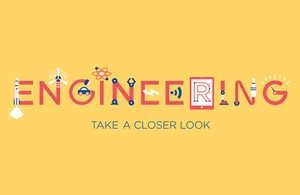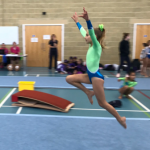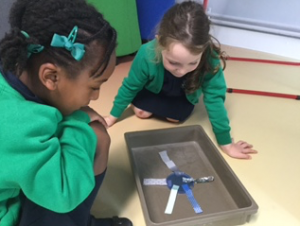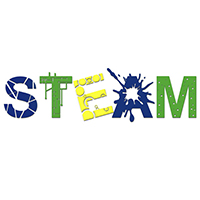Alex Farrer, one of our Scientists in Residence, looks at the value of science capital and the potential that this can have on future careers in the sciences.

2018 is the Year of Engineering – a government campaign to support the engineering profession in recruiting tomorrow’s engineers. Over the last 30 years efforts to attract girls and women into engineering have been unsuccessful. Currently less than 1 in 8 of the engineering workforce is female; boys are 3.5 times more likely to study A level Physics than girls; and boys are five times more likely to gain an engineering and technology degree (Engineering UK 2017).
Our STEAM focus at Wimbledon High provides insights into a variety of opportunities in engineering and in related areas such as design, sports, medicine and computer science. Through STEAM we strive to broaden what counts as science and help build the skills that future employers will value highly such as communication, problem solving and adaptability. We aim to encourage all pupils from Reception to Year 13 to think that STEAM is relevant and important to their lives, both now and in the future, and aim to build their science capital.
A national survey of young people aged between 11 and 15 found that 5% had a high level of science capital (ASPIRES projects).
Professor Louise Archer from UCL Institute of Education, directs the ASPIRES projects and has developed the concept of science capital which refers to someone’s science related qualifications, understanding, knowledge, interests, attitudes and contacts.
The Science Capital Teaching Approach aims to build on the existing science capital of pupils, encourage engagement with science and promote social justice.
If you have a high science capital you might:
- watch scientific TV programmes
- have science qualifications
- enjoy reading popular science books
- have friends and relatives that work in science and engineering professions
- visit science museums and fairs
- engage in science related hobbies or activities
- talk about science and engineering news topics with people you know
The evidence from this research project shows that the more science capital a pupil has the more they will aspire to continue with sciences post-16 and see science and engineering as fulfilling roles.
Below are some suggestions that schools could consider to build the science capital of pupils and adults in their communities so that everyone sees science and engineering as something of value.
- Host a family STEAM challenge event. This will help to encourage science talk with family members and show that STEAM is for everyone in the school community.
- Encourage science and engineering activities to “pop up” in the playground. Pupils, parents or staff could run the activities and the high visibility will encourage all members of the school community to get involved.
- Celebrate interest in scientific TV programmes and films. For example show a screening of a film like Hidden Figures with scientists or historians on hand to answer any questions, or encourage staff and pupils to talk about the science on TV they have seen.
- Signpost STEAM books, magazines and events to staff and pupils. An example is Itch by Simon Mayo, which contains a great deal of chemistry, and there are also some excellent science magazines such as Whizz Pop Bang and BBC Focus that can be linked to lesson content.
- Think about ways to get families talking about STEAM homework that is set. Linking tasks to science or technology in the news will encourage talk as will setting tasks where help from adults is very much encouraged such as making a marble run, growing a mystery seed or taking a STEAM photograph.
- Find out the sorts of science interests, hobbies, and expertise pupils and their families have so that lessons and assemblies can be personalised. Setting a “Science and me” homework will he
 lp to discover how many parents and pupils you have in your class with scientific interests and skills.
lp to discover how many parents and pupils you have in your class with scientific interests and skills. - Elicit and value the wider links that pupils have to science and engineering and draw upon them in lessons. For example using the experience of a gymnast in your class in a physics lesson will enable pupils to broaden what they thinks counts as science in their life.
- Invite scientists and engineers that pupils will relate to into lessons and encourage them to talk about the skills and attributes they use. This could be a parent who uses STEAM skills in their job, a STEM Ambassador or someone who has relevant interest and knowledge. Even better if the scientist or engineer visits a lesson other than science! @STEMAmbassadors

If you are a primary teacher and would like to find out more about how you can build science capital in your school we will be hosting a Science Capital Workshop on February 7th 1.30-3.30pm. Please contact joanna.sandys@wim.gdst.net if you would like to come along.
If any parents with STEAM expertise would enjoy sharing some of their knowledge, skills and insights with our pupils please do let antonia.jolly@wim.gdst.net know and we will be in touch.
We look forward to enriching the science capital of our community in this exciting Year of Engineering as our STEAM journey continues.
Follow @STEAM_WHS on Twitter – #YoE

